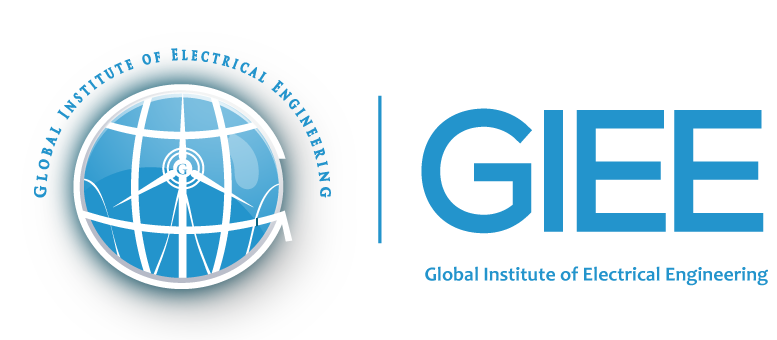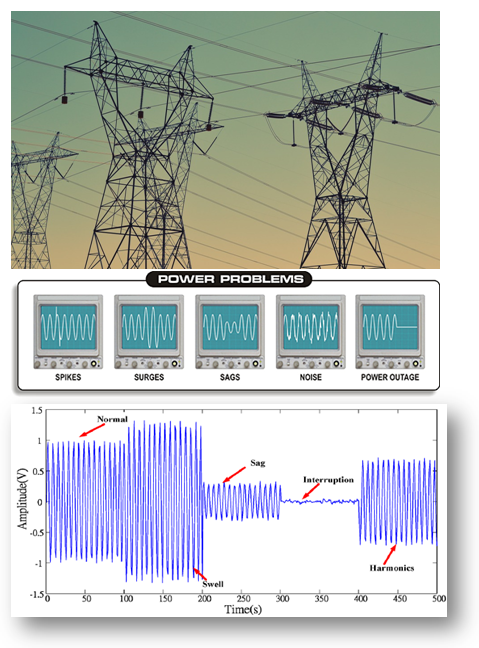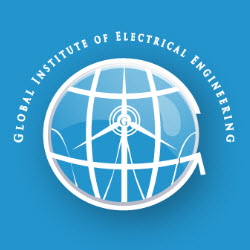Course Description
In today`s world of Smart Grid, deregulated electric power systems, and high use of novel power electronics, power quality is an important commodity. This course is aimed at familiarizing the concepts of voltage sags, harmonics, momentary disruptions, and waveform distortions. A theoretical and mathematical basis for various indices, standards, models, and analyses techniques will be presented. Additionally, sources of power quality problems and some remedies for improvement will be discussed. This course covers a wide range of topics, including: Sags; swells; under or overvoltage; harmonics; transients; flicker; electrical noise; interruptions wiring and grounding issues; Instruments and Analyzers; Power Characteristics; standards & codes.
Pre-requisites: EE310
Course Objectives
o Recognize symptoms of power quality problems including sags, swells, flicker; under or overvoltage, harmonics, transients, electrical noise, interruptions wiring and grounding issues.
o Classify power quality events according to IEEE and public utility standards.
o Explain proper application and interpret results of power quality monitoring equipment.
o Recommend viable solutions including UPS, line voltage regulators, transient (surge) suppressors, harmonic filters, line filters, power conditioners, isolations and zig-zag transformers, proper wiring and grounding etc.
Pre-Requisites by Topic
o Calculus
o Electric Circuits
o Basics of electric power systems
o Distributed energy resources
Computer Usage: --------------------
Topics
1. Introduction 0.5 Hour
2. Production and Usage of Electricity 1 Hour
o Electrical Power System
o Energy
o Production of Electricity
o Loads
3. Power Quality Fundamentals 1 Hour
o What is Power Quality?
o What is Power Quality Engineering?
o Why is Power Quality important?
o Review: AC Circuit Theory, Fourier Series, Power Electronics Basics
o Vocabulary and Definitions
o Standards and Measures
o Planning Power Quality Investigations
4. Power Characteristics 1 Hour
o Phase Shift
o Resistive Circuits
o Inductance
o Capacitance
o Impedance
5. Power Quality Problems 7 Hours
o Voltage Changes
o Transients
o Voltage Sag Measurement
o Voltage Swell Measurement
o Transient Voltage Measurement
o Harmonics
o Harmonic Measures and Standards
o Noise
o Monitoring Power Quality
o Flicker
o Documenting Power Quality Problems
o Troubleshooting
6. Wiring and Grounding 2 Hours
o Definitions and Terms
o Reasons
o NEC Requirements
o Standards
o Missing and Multiple Ground Connections
o Ground Loops
o Neutral Sizing
o Common Errors
o Resonant Effects
o Solutions to Grounding Problems
o Case Studies
7. Real Examples (problems & solutions) 5 Hours
8. Instruments and Analyzers 1 Hour
o What is available?
o How does it operate?
o What to expect
o Safety
o Case studies
Assignment of course grade:
The grade will be based on the weighted index as shown below.
Homework . . . . . . . . . 15 %
Quizzes . . . . . . . . . . . . 15 %
Project .. . . . . . . . . . . . 15 %
Final Exam . . . . . . . . . 55 %
* 3 quizzes + 3 Assignments+ 1 project + 1 final exam
Course Pass Grade: 80%
Tuition: $700 USD
Please visit GIEE Events page for upcoming courses or contact us for private courses.



